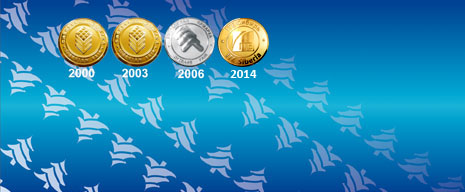 |
 |
Language education
Effective Ways to Practice Synonyms and Antonyms Dictionary in Primary School
The article substantiates the necessity o f using synonyms and antonyms dictionary in the process of teaching the Russian language to junior schoolchildren. The key aim o f the present article is to determine the basic methodical principles o f work with the this dictionary, which is one o f the most important prerequisites for forming and developing speech o f the junior schoolchildren.
Keywords: dictionary, synonym, antonym, methods o f work with dictionary, types of tasks and exercises.
Achievement of Meta-subject Outcomes Through Project Method and Cooperative Learning Through English Classes
The article deals with the process of teaching junior students, teaching strategies and getting learning outcomes in accordance with the Federal State Educational Standard. The authors reflect on meta-subject outcomes as well as the use of project work and cooperative learning as new educational approaches which aim to transform classroom activities into academic and social learning experiences. Successful cooperative learning is based on Deming's 14 principles, which can be adapted to the needs o f modern school education involving different kinds of pupils' interaction in class.
Competence Approach to the Formation |И of Humanitarian Culture of the Future Teachers | of a Foreign Language
Changes in the modern society put forward the task of humanizing the teaching and educational process, and, (L accordingly, the formation o f the humanitarian culture o f the individual. The authors o f the article in the content o f the student's human culture include a set o f universal human ideas, value orientations, creative ways o f professional activity, formed humanitarian qualities; competence approach is considered to be a methodological basis for the formation of the humanitarian culture of students in the process of teaching a foreign language.
Principles of the Formation of Humanitarian Culture in Linguistically Gifted School Students in the Course of Teaching a Foreign Language
In this article the author describes the application o f a number o f the principles in teaching a foreign language linguistically gifted school students in the modern system o f additional foreign-language education on the basis o f which spe- S cial programs o f teaching this category o f pupils are under construction.
Cultural Identity of Foreign Language Learners
The publication addresses the multifaceted phenomenon of the learner's cultural identity in the course of learning foreign languages. The author sees the importance of this problem in the controversial neoglobalization, in which languages and cultures are not just migrating across the borders adapting to local languages, but local cultures absorbing the invaders and demonstrating self-assertion. The publication includes the analysis of the "third culture" concept. It also studies the cultural identity in the learners of English.
Development of Student’s Social Competence by Authentic Textbooks
The article considers the problem of using authentic textbooks in the discipline "Foreign language" at specialized schools in the system of additional education. It is established that the democratization of school education has become a major factor for the emergence and use of new textbooks and teaching and methodological sets created by foreign methodologists.
Specificity of Second Foreign Language Studying: German a fte r English
The article discusses the principles of three languages proficiency, studying second foreign language, specifically German after English and native language. This problem became actual after implementation of FSES at general school, where studying second foreign language is compulsory.
Communicative Paradigm for Language Education in Innovative Humanitarian Environment
The article covers the most urgent and problematic issue of our education, i.e. its communicative paradigm (СР). In the focus of both educators' and researchers' attention are the assets which concern the strategy and technology of the formation of communicative personality in the process of Language Studies, both native and international languages. First and foremost, the basics for convergent strategies in communication could help to create innovative humanitarian environment, the main characteristics of which are poly-cultural and multilingual assets.
Сайт поддерживается в Новосибирском институте повышения квалификации и переподготовки работников образования и является участником Новосибирской открытой образовательной сети